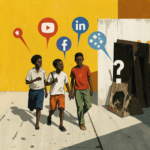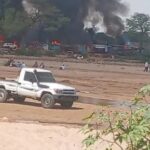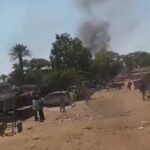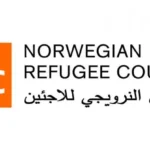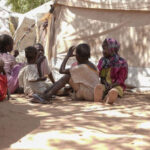By: Enaam Alnour
In the early morning, 28-year-old Salha Ibrahim left the city of El-Fasher, holding the tiny hand of her infant daughter and looking back one last time at the city she was leaving behind unsure if she would ever see it again.
“I saw with my own eyes how they killed my son, he was 12 years old,” she said in a trembling, exhausted voice. “They shot him in the head, then told me, ‘Cry for him quickly before it’s your turn.’ I just ran. I don’t even know how I made it to Tawila.”
This is the beginning the beginning that reflects the stories of hundreds of thousands of women and children uprooted by war, whose city, once a refuge, became the starting point of an exodus into the unknown. It is a journey of fear, pursuit, and waiting; a path from El-Fasher to long-term displacement camps camps not built for temporary shelter, but to contain an enduring human tragedy.
The Journey of Death: From El-Fasher to Tawila
Samia Ibrahim, a woman in her fifties who survived the horror of El-Fasher, said she fled the city with her three children and infant grandchild while shells rained down on the streets ahead and behind them.
“We were just running, not knowing where to go,” she said. “Fire everywhere, screams filling the sky. My husband was running behind me, but suddenly I didn’t see him anymore.”
Ikram, another survivor, recounted that the Rapid Support Forces (RSF) had built dirt barricades around the city and that she was stopped at one of them along with dozens of women and men trying to escape.
“They separated us,” she said. “They told the women to one side, the men to the other. Then they lined the men up and said, ‘Soldiers, surrender yourselves.’ No one moved. Then they picked a few from the middle… and we heard the gunshots.”
She paused before continuing in a whisper:
“They fell right in front of us. The men were killed there, and we just kept walking. None of them ever came back.”
Carrying her orphaned grandchild, Ikram said:
“I couldn’t find milk for him, so I fed him animal fodder after cleaning it with water. His body weakened; tears were useless. Only once did I find milk. Then I kept giving him rehydration solution until we reached Tawila.”
Ikram’s voice carries the remnants of a city whose lights were extinguished.
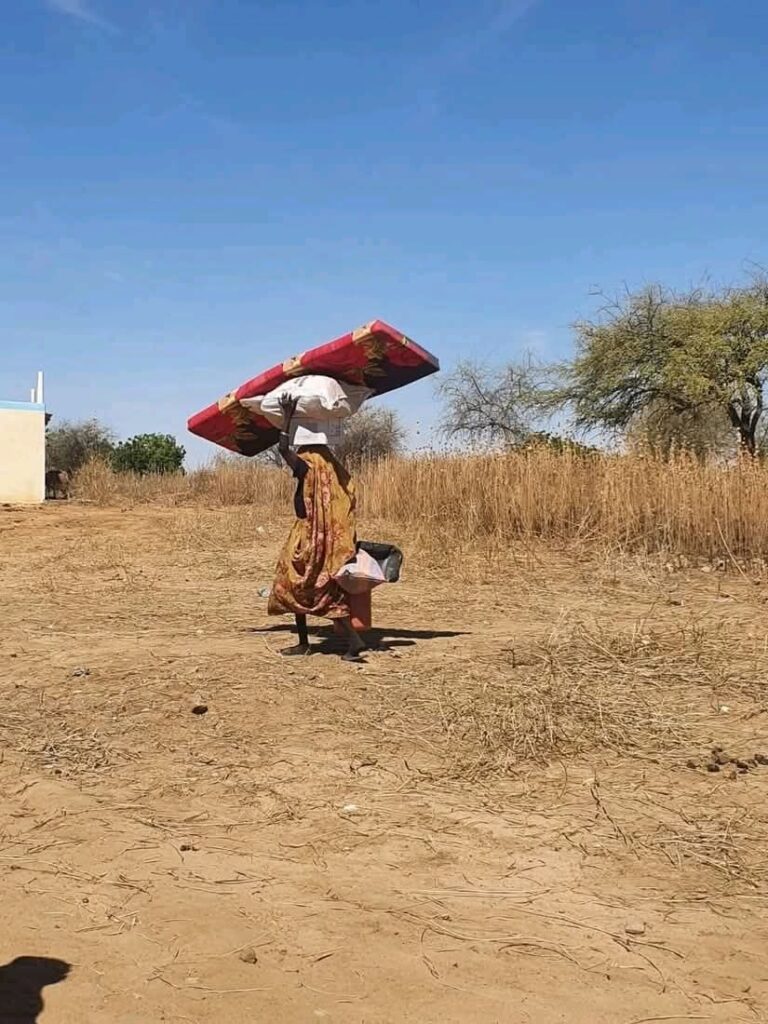
Abubakr Ahmed, a nutrition specialist with UNICEF, said that over 6,000 people fled from El-Fasher to Tawila last week alone, most of them women and children.
“The displaced arrive in extremely poor condition,” he said. “They walk for four to five days along the 68-kilometer road between the two towns, often with no food or water.”
This journey, marked by systematic looting and arbitrary checkpoints, became the opening chapter of a long horror. Women ran barefoot; others dragged injured children bleeding in silence, as if the world had forgotten how to grieve.
Witnesses say the RSF was not targeting combatants—but civilians.
Um Mohammed, another survivor, described the road as “an open graveyard.”
“I saw the daughter of our neighbor, maybe sixteen years old, lying on the roadside with her clothes torn,” she said. “We couldn’t stop, couldn’t bury her. Fear was stronger than anything. Every step was a chance of death, and stopping was death itself.”
Samia Ibrahim, now volunteering with a human rights group in Tawila, said the killings in El-Fasher were not random acts of war, but a systematic campaign to spread terror among civilians.
“Public squares and house fronts became execution stages,” she said. “Men were taken from their homes and executed before their families to break their spirits and subjugate the entire community.”
Children, too, were not spared. Many were deliberately killed in front of their motherssome because they cried in fear, others as collective punishment.
Systematic Extermination of Women
In a shocking statement, Minister of State for Social Welfare and Labor, Salma Ishaq, said that RSF attacks deliberately targeted safe shelters and displacement routes, killing no fewer than 300 women in El-Fasher.
She added that the attacks were accompanied by systematic torture and sexual violence against women and girls before killing them, confirming a premeditated plan behind these assaults.
Adam Regal, the spokesperson for the General Coordination for Displaced Persons and Refugees in Darfur, said that over 150 women were subjected to rape and sexual assault during their escape from El-Fasher to Tawila.
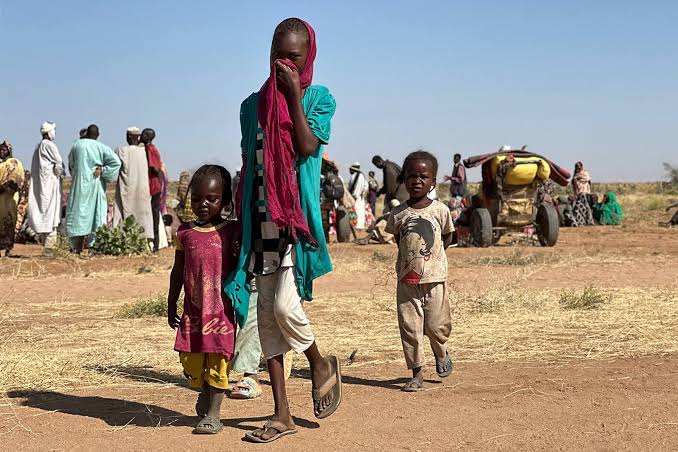
Killing of Children: The Silence That Screams
Sara Taj al-Sir, a lawyer turned witness, said tearfully:
“One of the gunmen shot my son right in front of me. I couldn’t scream or move. His eyes were begging me, but I couldn’t reach him. I thought we would all die, but I ran carrying him, dragging what was left of my soul.”
She added: “The worst moment wasn’t even the killings—it was that night when I heard mothers screaming in the dark, recognizing each other only by the color of their robes. Faces were no longer visible. Eyes could only see darkness.”
According to a statement by the Fasher Resistance Committees, more than 450 children reached “safe areas” without their families after being separated during the chaos.
The UNICEF report confirmed that displaced families walked 60 kilometers on foot without food or water. Executive Director Catherine Russell warned that 130,000 children in El-Fasher are at risk of grave violations, including abduction, killing, maiming, and sexual violence, stressing that “no child is safe.”
Public Executions: A Policy of Terror
Mahasin, a women’s rights activist, said the killings in El-Fasher were part of a deliberate policy of intimidation, not the fog of war.
“Public squares and homes became execution grounds,” she said. “Families were forced to watch their loved ones killed to crush their dignity.”
Sara Abdullah (40), who lost her husband and two sons, recalled:
“They came at dawn and dragged my husband and sons outside. I begged them to stop; they hit me on the head with a rifle. When I woke up, I heard them count ‘One, two, three’ then the shots. I saw their bodies fall, one after another.”
Omayma Ahmed (35), a mother of five, said:
“They didn’t stop at killing my husband. They grabbed my eldest son, Mohammed, 14 years old, and asked him, ‘Are you crying for your father?’ When he didn’t answer, they shot him in the head. Then they told me, ‘Save your tears for the rest of your children.’ They laughed as they left.”
Fatima Mahmoud (32) added:
“My daughter, Sarah, was five. She hid behind me, crying. One of them came, grabbed her by the arm, and shot her. She fell right in front of me. After that, I couldn’t hear anything.”
Crimes Broadcast Online
Perhaps the most chilling aspect was that many of these crimes were filmed and shared on social media by the perpetrators themselves.
Salma Idris (28) said: “I found out my brother was killed when I saw a video online. They were filming the execution and laughing. I couldn’t finish watching.”
Recently, members of the RSF have been documenting and live-streaming these atrocities through affiliated accounts, showing executions, assaults, and looting—using language meant to terrorize local communities and send punitive messages to anyone considering resistance or escape.
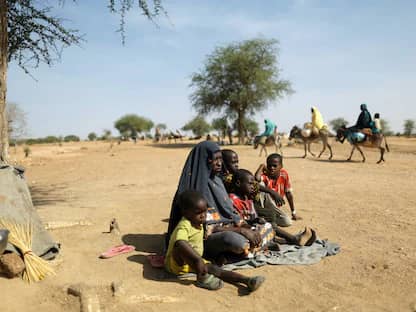
The Murdered Memory: Wounds That Don’t Heal
Experts say this is not random violence but a calculated campaign to instill fear and dismantle the community’s psychological fabric.
A psychologist working in Tawila explained:
“These are not random acts of brutality they are deliberate strategies. Killing sons in front of mothers, husbands in front of wives, creates a collective trauma that lasts generations. The goal is not just to eliminate people, but to destroy the society itself.”
A doctor at Tawila Hospital, who requested anonymity, described horrifying scenes:
“We’ve received mothers who lost their ability to speak after witnessing their children’s deaths. Some carry their dead babies for hours without realizing they are gone. These are wounds that never heal.”
Despite limited access to affected areas, reports indicate a rapidly deteriorating humanitarian situation, with thousands still arriving in Tawila under dire conditions. The need for urgent humanitarian aid, independent monitoring, and credible investigations is growing by the day.
Between El-Fasher and Tawila, one truth stands clear: civilians have been left without protection, and atrocities continue unchecked.
Documenting these testimonies remains an essential step not just to preserve memory, but to ensure that what happened is neither denied nor forgotten.


